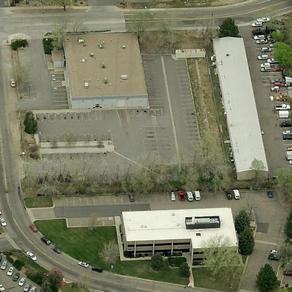Denver Air Quality
- DENVER YIMBYs for GOOD
- Jul 29, 2021
- 4 min read
Updated: Oct 26, 2021
As the non-stop construction of McMansions, 5 car garages, skyrises and housing continues, more people continue to flood our roads, and our open green spaces are covered with more concrete, cars and buildings, Denver's air quality has continued to get worse and worse.

Many blame Denver's growing haze on wildfire smoke, but no, most of it is coming from our millions of vehicles – most of the haze is being cause by ozone and not wildfire smoke. High levels of ozone is caused by pullulates created by oil and gas production for our consumption (yes, that's for us to use for heating, cooling, driving & cooking), plus our millions of vehicles on the road, paints and solvents, lawn mowers, tractors, and other machinery. While ozone is not emitted directly from automobiles, the unstable compound is formed in the atmosphere through a complex set of chemical reactions involving hydrocarbons, oxides of nitrogen, and sunlight – so these hot summer afternoons with millions of people driving cars on I-25, I-70 and all our roads are the main source of our hazy, toxic skies.
Yes, Denver's air pollution is mostly caused by cars: the Environmental Protection Agency estimates that vehicles cause nearly 75 percent of the carbon monoxide pollution in the United States.

Idling Cars:
People let their cars idle as they check their phone, or while waiting in the drive-thru, or waiting to pick up their kids from school. The idling of our personal vehicles wastes about 3 billion gallons of fuel a year — generating around 30 million tons of CO2 annually in the U.S. Idling for more than 10 seconds uses more fuel and produces more emissions that contribute to air pollution than stopping and restarting your engine does.
In Denver, we can't even see our mountains on most days anymore! Yet our city council continues to grant permits for this never-ending growth that is ruining our city. People continue to have kids without any thought of tomorrow – the homes or apartments that these kids will live in are most likely not even built yet.
And to top it off, tractors are razing open spaces, removing healthy trees and pouring concrete over permeable ground – Denver is becoming a concrete jungle.
Combine all of our pollution-producing vehicles with raging smoke produced by wildfires, and Denver has some of the most toxic air on the planet. Here are a couple recent reports on just how bad our air is:
Denver 9News article:
Denver CBS articles:
Below is an excerpt from Colorado Newsline: coloradonewsline.com/2021/09/22/smokescreen-are-colorado-officials-countering-misinformation-on-smog-or-hiding-behind-it/
When it comes to Colorado’s biggest and longest-running air quality problem, ground-level ozone pollution, there’s broad agreement among scientists that wildfire smoke can and does have an impact. But while that impact hasn’t yet been precisely quantified, opinions of its size generally range from modest to minimal — increasing ozone levels incrementally under certain conditions, but far from the “primary and largest factor.”
And yet, throughout Colorado’s worst summer for air quality in many years, misconceptions about the role of wildfire smoke have been everywhere, from formal testimony before the AQCC to everyday small talk along the Front Range.
“People love to talk about the weather, and this summer it’s been all about the air,” said Melissa Colonno, a Denver resident and biking advocate. “I take it as an opportunity to talk about the bad air, and people will often say, ‘Oh, yeah, the fires.’”
In fact, most ground-level ozone — formed by chemical reactions between sunlight and pollutants like nitrogen oxides and volatile organic compounds — is caused by local sources like gas-powered vehicle engines and oil and gas production, as well as “background” ozone that drifts in from out-of-state. Read full article »
Here's another recent article excerpt from 9 News:
Excerpt: He said we are disadvantaged because our geography and elevation favor sunnier summers, but that is no excuse to live with dirty air because most of the sources of ozone pollution are under our control.
“In the short term, a lot of the gases that produce ozone are emitted during fossil fuel production, during fossil fuel transportation, during fossil fuel burning in cars and power plants. So the more we reduce that, the more we can reduce our immediate ozone problem.”
Conflicting Denver News Headlines:
Below are some recent local headlines from Google News, talk about conflicting messaging! While our news outlets write click-bait headlines about how bad Denver's air quality is, they simultaneously tell us to get into our cars to drive to the mountains to see the "fall colors." I wonder if the fall colors they are referencing also includes the grand view of the purple haze of air pollution sitting over the Front Range as people sit in traffic on I-70 and 285 on their descent back to the city from a scenic mountain drive.
Yes, most of Denver's haze is being caused by ground-level ozone, not wildfire smoke. So stop blaming the wildfires and start riding your bike, turning off lights and appliances, protect and plant trees, replace lawns with native plants, stop building over more of our permeable green spaces and landscapes, and for goodness sake, consider not having children to slow down this train.

We are creating hell on earth by this non-stop growth and consumption of our finite planet. Our population continues to spiral out of control, and developers are gobbling up every inch of land they can to pave over for housing, retail buildings, and roads. Denver, which used to be famous for it's blue-skies and sun filled days, has turned into a hazy, polluted land of traffic and non-stop sprawl. It's time to slow down this madness.










Comments